AI: The Bigger Picture, October 1 2023
(House-keeping note: Starting this Sunday, I’m renaming this weekly piece from ‘AI: In My View’, to ‘AI: The Bigger Picture’. Think this better captures what I try to do with these pieces, which is to synthesize the flood of market and AI developments into what’s important in the bigger scheme of things long-term. Will use the cartoon below to emphasize this point every Sunday).
In this Sunday’s “The Bigger Picture”, I’d like to highlight the bigger opportunity beyond Hollywood’s current travails, as it is on a path to resolve its first joint writer/actor strikes since the sixties. Specifically, the five month long Writer’s strike ended in Hollywood with concessions by the Studios, and the Actors’ strike will likely also be settled building on the agreements reached to date. But the bigger picture as I’ve discussed before for Hollywood workers and the studios is that the ‘scarce’ content they produce and control is being quickly overtaken by the vast amount of exploding content being created every day by tens of millions of ‘Creators’ aided by ever more inexpensive and more powerful technology. And AI only accelerates this trend exponentially. Let me explain.
But first, let’s recap what was accomplished the smaller ‘molehill’ that’s got most of the focus and discussion, as per the Collider:
“The Writers Guild of America has ended their strike after securing historic new protections for workers in the film industry, including safeguards against AI, better residuals, accurate streaming data, and health insurance.”
“Collective bargaining has proven successful as the writers have secured almost all of their initial requests, as demonstrated by the evolution of their demands between May and the tentative agreement reached.”
“The new deal regulates the use of AI in TV and film projects, stating that AI-generated material cannot be considered literary material or source material, and provides the guild with the right to assert that using writers' material to train AI is exploitation. The agreement is a significant victory against AI's infiltration into the industry.”
The Actors should be able to build on this and come to their own agreement shortly, as the Hollywood Reporter summarizes:
“After the Writers Guild of America struck a tentative deal that brought an end to its historic strike, on Monday SAG-AFTRA will be headed back to the bargaining table in an attempt to do the same — and many in town are hopeful for a quick resolution.”
Lot of details in both pieces about the specific issues and details to be negotiated and presumably compromised over.
On the much publicized issues around AI for both unions, the Hollywood Reporter highlights:
“Artificial Intelligence is one significant crossover issue for the WGA and SAG-AFTRA. The performers union said its negotiatorssought “a comprehensive set of provisions” focused on consent and compensation when performers have a “digital replica” created of them or their performance changed by AI. The AMPTP says it has addressed some of these issues by instituting “a requirement for performers’ consent for the creation and use of digital replicas,” but the sides have not yet come to an agreement on guardrails.”
“Though SAG-AFTRA hasn’t revealed details of its AI proposal, it has decried that the AMPTP allegedly wanted to “use someone’s images, likenesses and performances to train new generative AI systems without consent or compensation.” So even as the two unions appear to have somewhat distinct concerns about the evolving technology, the WGA deal could potentially provide SAG-AFTRA with a template for how to approach future scenarios where companies want to use performances to train AI models. The writers union sought to block the companies from training AI on its members’ writing, and in its eventual deal the WGA and the AMPTP essentially asserted and reserved their rights with regard to the technology. They also agreed that they could meet to discuss companies’ use of it as AI evolves.”
As I’ve highlighted on earlier pieces on ‘Digital Twins’ and ‘Counterfeit People’,
“The key is to understand here here of course that digital technologies turn scarcity into abundance. And that’s not necessarily a bad thing as many would assume at first glance. Abundance opens up a lot more ways to make money, both direct and indirect."
“The broader question of course is what happens when ‘Creators’ on the internet are given agency to take multiple ‘digital twins’ and combine them in creative ways.”
We saw the first baby steps this week on that front with Meta announcing its ‘Meta AI’ leveraging Microsoft Bing Search and its Llama 2 LLM AI, but also finally showcasing its ‘smart agent’ AI personas with over two dozen celebrities from Sports, Media, Music, and the ‘Creator’ Economy. Note there weren’t many on that list from the Writer’s and Actors Unions in the news above.
And about that ‘Creator’ Economy, it’s already over a $250 billion market that will grow to almost half a trillion by 2027, in recent reports by Goldman Sachs.
The Wall Street Journal summarizes a bigger picture for Hollywood BEFORE we see meaningful impact from AI technologies:
“Peak TV is over. A different Hollywood is coming. The end of the writer’s strike markets a new era. Studios and streamers are likely to order fewer TV shows. Consolidation could follow.”
The piece goes through some sobering numbers for the industry showing a receding amount of spend on streaming content by the industry, and some inevitable consolidation after the Netflix inspired streaming spending binge by Hollywood in recent years.
But the BIG PICTURE for Hollywood is that user habits are changing at scale. Users are increasingly spending significant time on average on ‘Creator’ content on TikTok, YouTube, Meta Reels and other online services. So the pie being fought over above is shrinking, and another, newer pie is growing to potentially eclipse the earlier one in size and scope. As tech luminary Professor Scott Galloway notes:
“The adversary isn’t a Hollywood executive in a cashmere sweater; it’s a 17-year-old kid in a basement scrolling TikTok. The rise of social media is directly correlated with the decline of traditional media. TikTok now commands 95 minutes of user attention per day, equivalent to four and a half episodes of The Office. More than 200 billion Facebook and Instagram Reels are played every day — up 50% in less than one year. YouTube, a subsidiary app owned by Google, now rakes in as much revenue as Netflix.”
As I’ve higlighted before, Habits are changing fast and at scale, and not just in the US. And it’s being reflected in the public markets. Again, as Galloway above notes:
“The industry is quarreling over pennies, instead of pursuing Benjamins. More market value in the Nasdaq was created in the first half of this year than in any six-month period in history. The catalyst was AI. The day Microsoft announced it was incorporating AI into its Office suite, it added the value of Disney. The day Morgan Stanley praised Tesla’s Dojo supercomputer, Tesla added the value of BMW. Meta’s new AI-powered recommendation algorithm drove a 24% increase in Instagram use this year. AI has inspired a tsunami of shareholder value: In 2023 alone, Google, Meta, Nvidia, Microsoft, Apple, and Amazon have registered a combined increase of $3.2 trillion.”
“Compare that to traditional media: The combined market cap of Comcast, Netflix, Disney, Warner Bros., Paramount, Fox Corp., and News Corp. is less than $600 billion. Think about that. The value gained by six tech firms this year is nearly six times greater than the current value of the seven largest mass-media companies put together. Hollywood needs to put down the slingshot, and go big-game hunting.”
Pithily put. As I’ve outlined before, Hollywood is being ‘jostled’ by Tech again:
“Especially as Tech and AI over the long run accelerate the trend from Scarcity to Abundance, in terms of digital creation and distribution of any content that ultimately attracts human attention. For Hollywood for now, it’s about carving smaller pies while waiting for bigger, newer pies.”
The good news in these agreements is that the first baby steps are being taken to adjust to these new realities. And I daresay, on the whole we’ll look back and see a far bigger pie for all, and most of the creative folks being discussed in the pieces above will likely get their share of it. Stay tuned.
(NOTE: The discussions here are for information purposes only, and not meant as investment advice at any time. Thanks for joining us here)




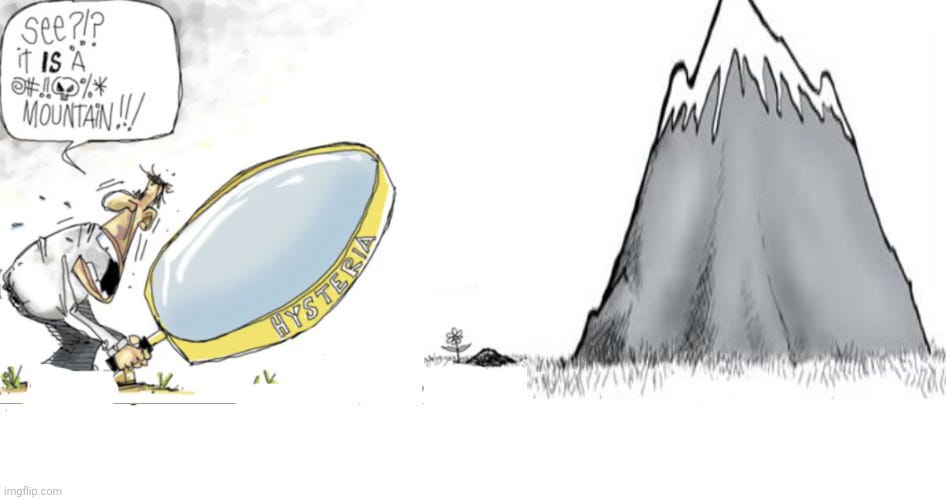
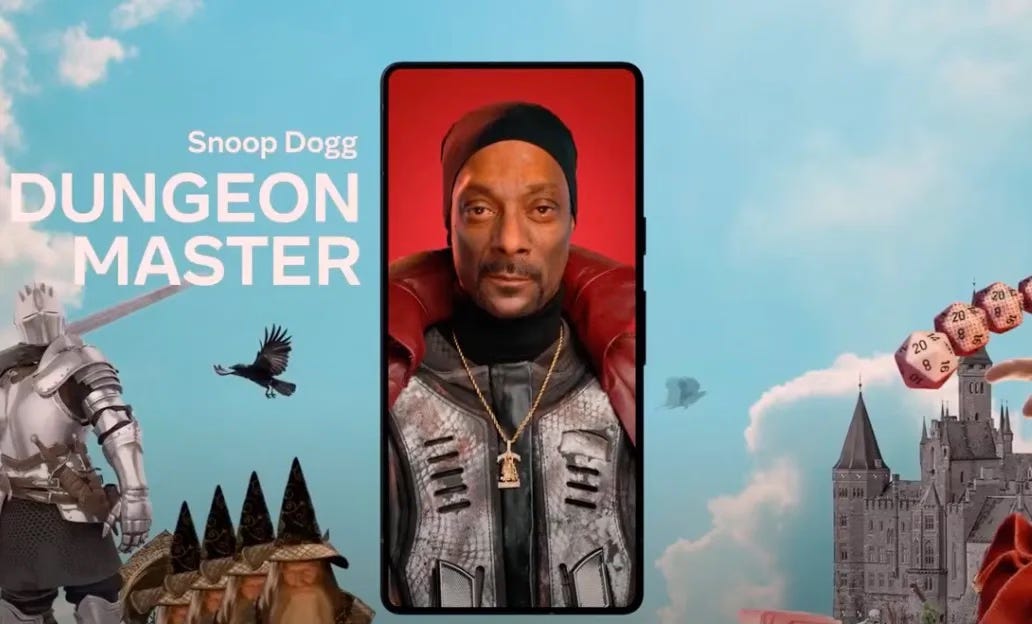
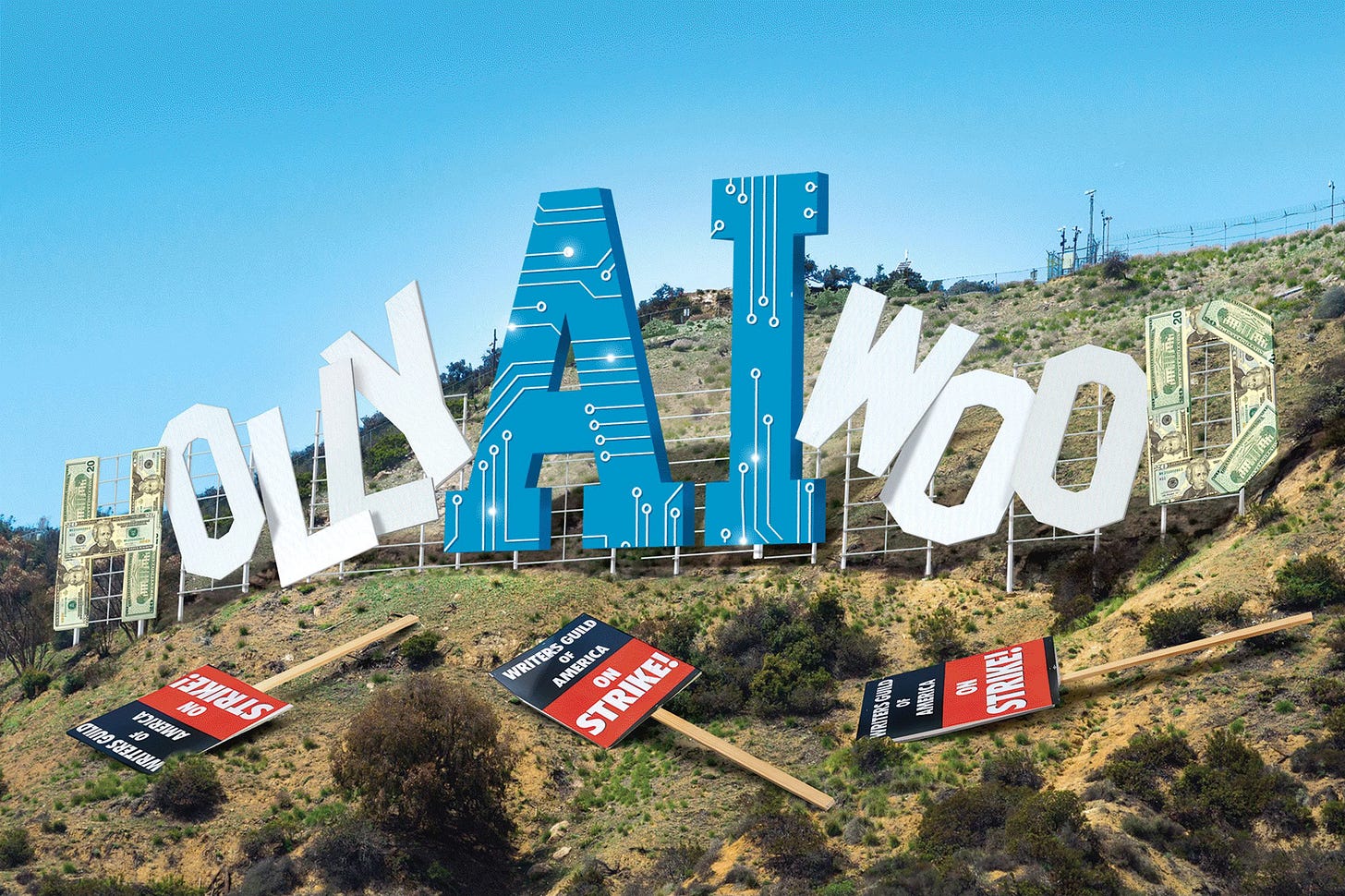
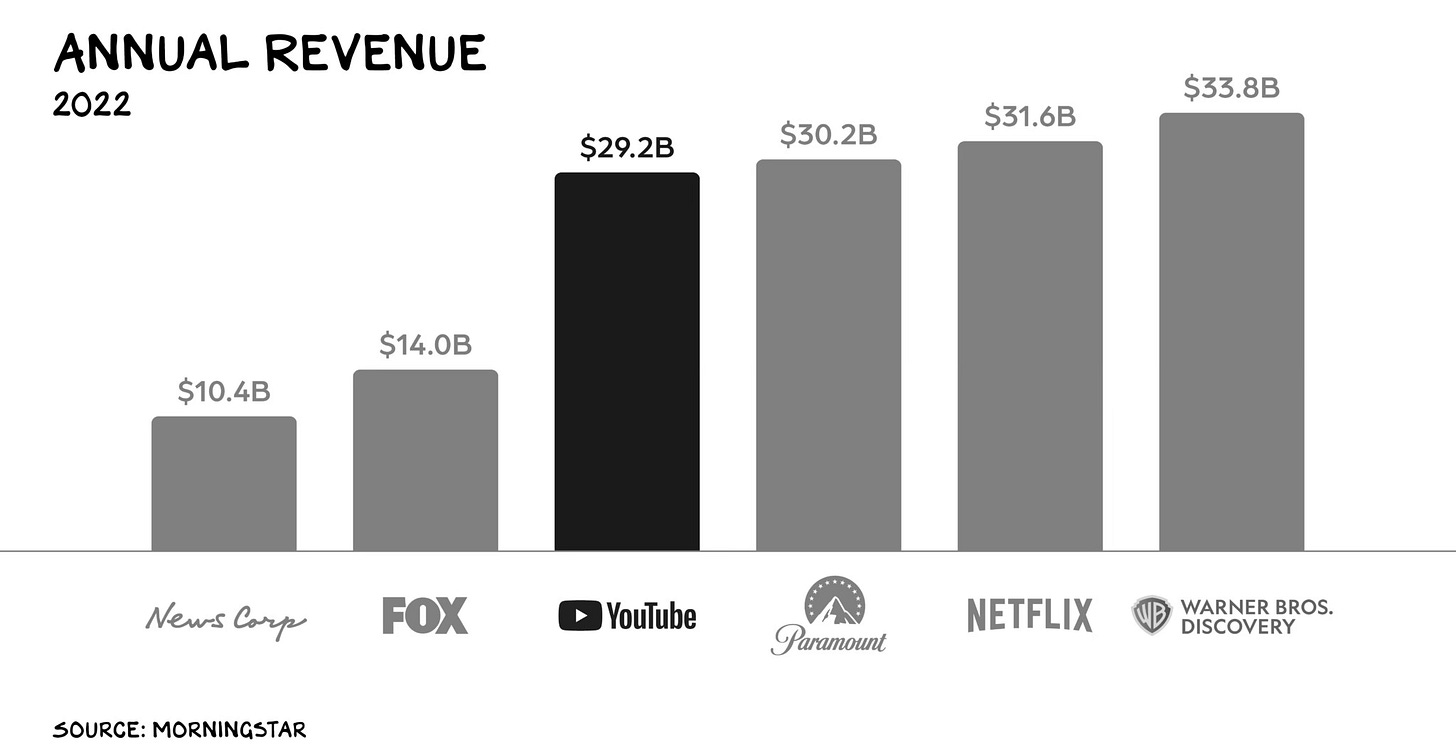
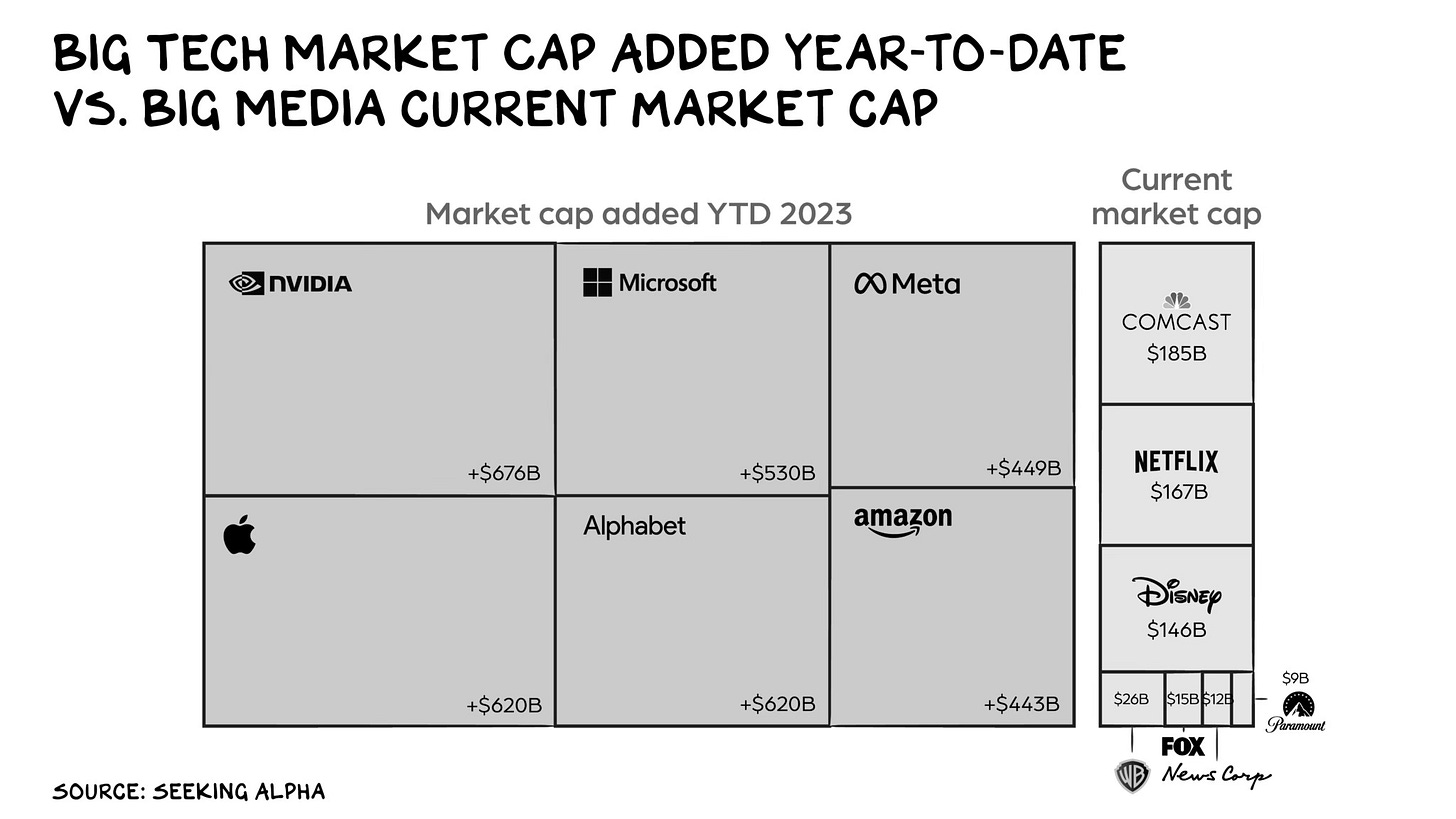
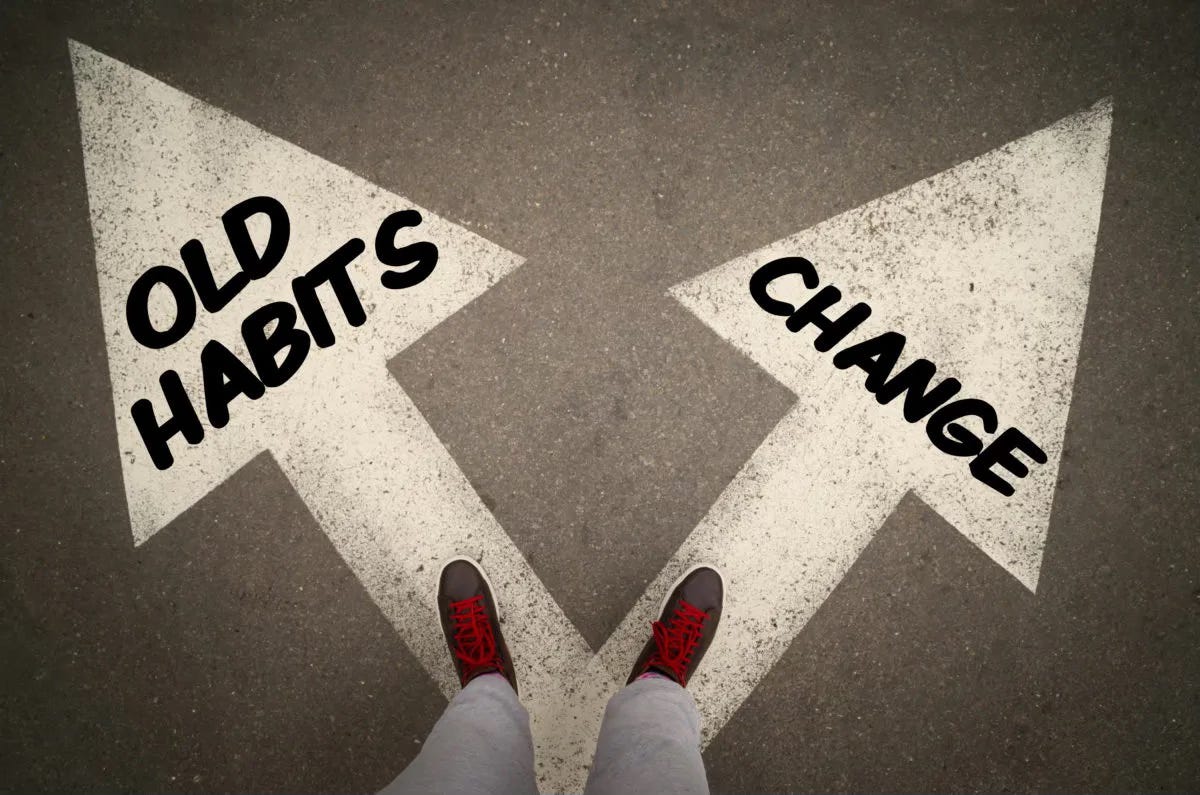
seriously? - tech luminary Professor Scott Galloway - please please please don't buy into this guy's hype. His luminous insights on Tesla (think iceburg) is legendary ignorance at best and even makes Jim Crammer look like a genius.